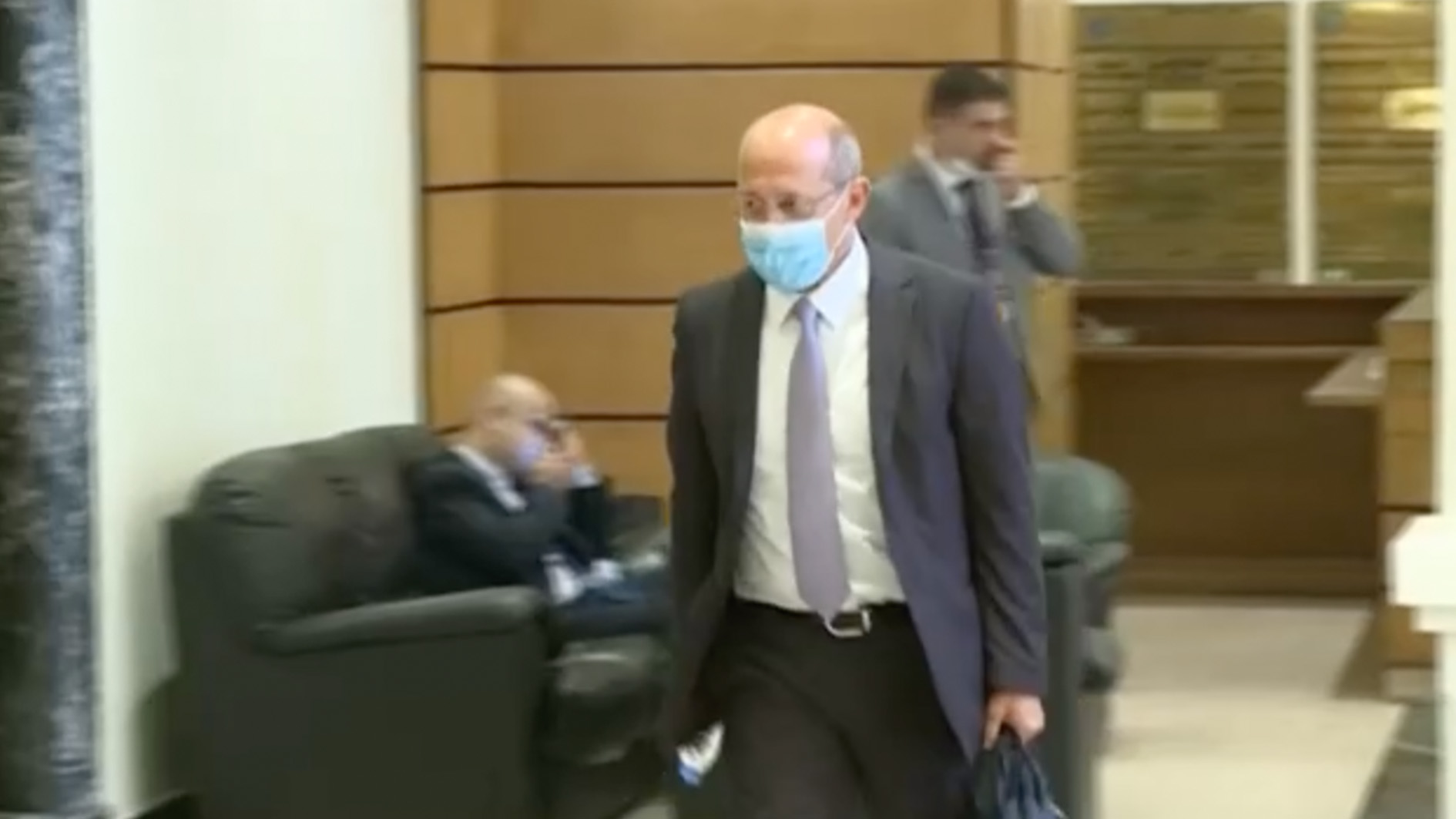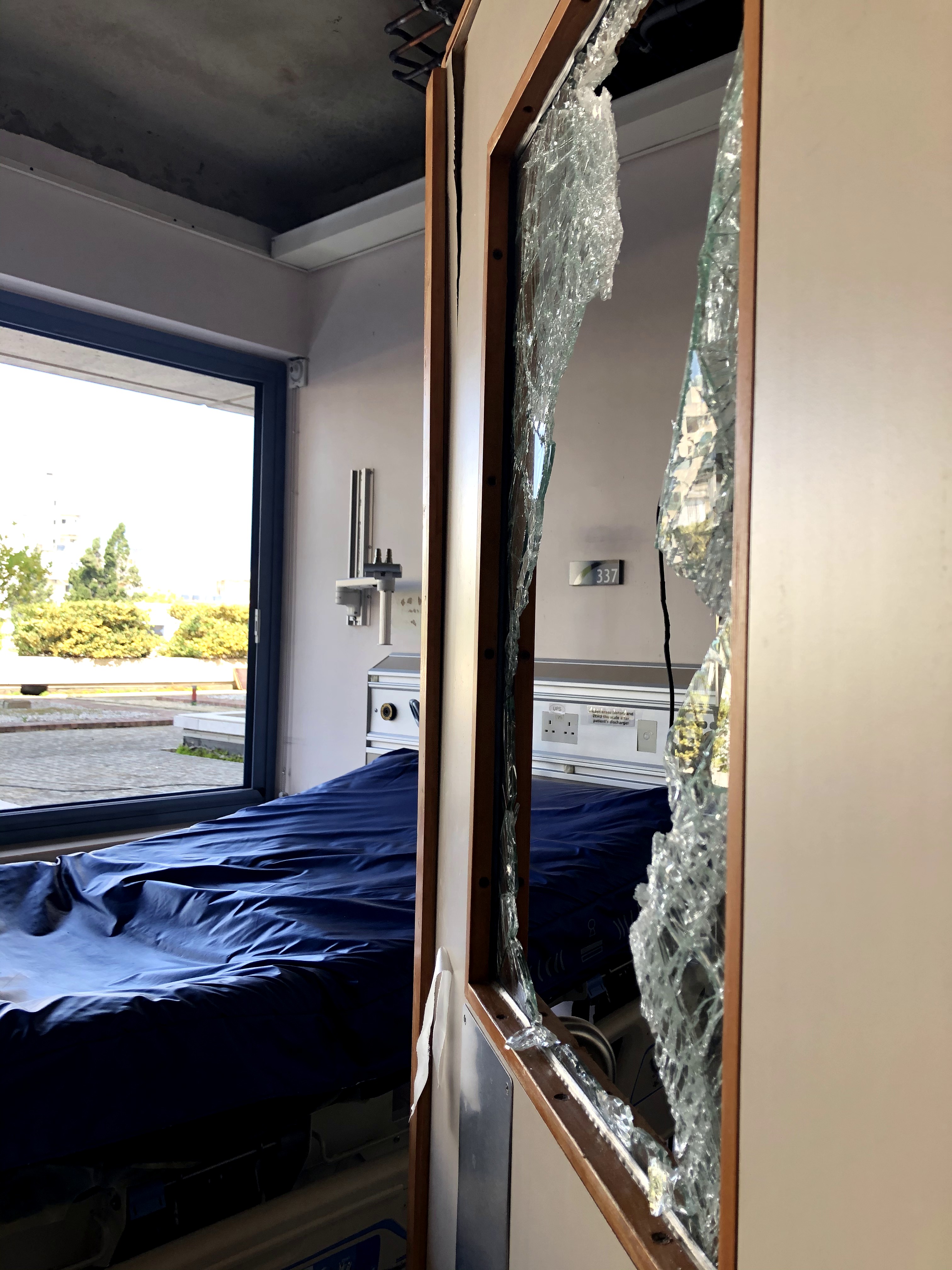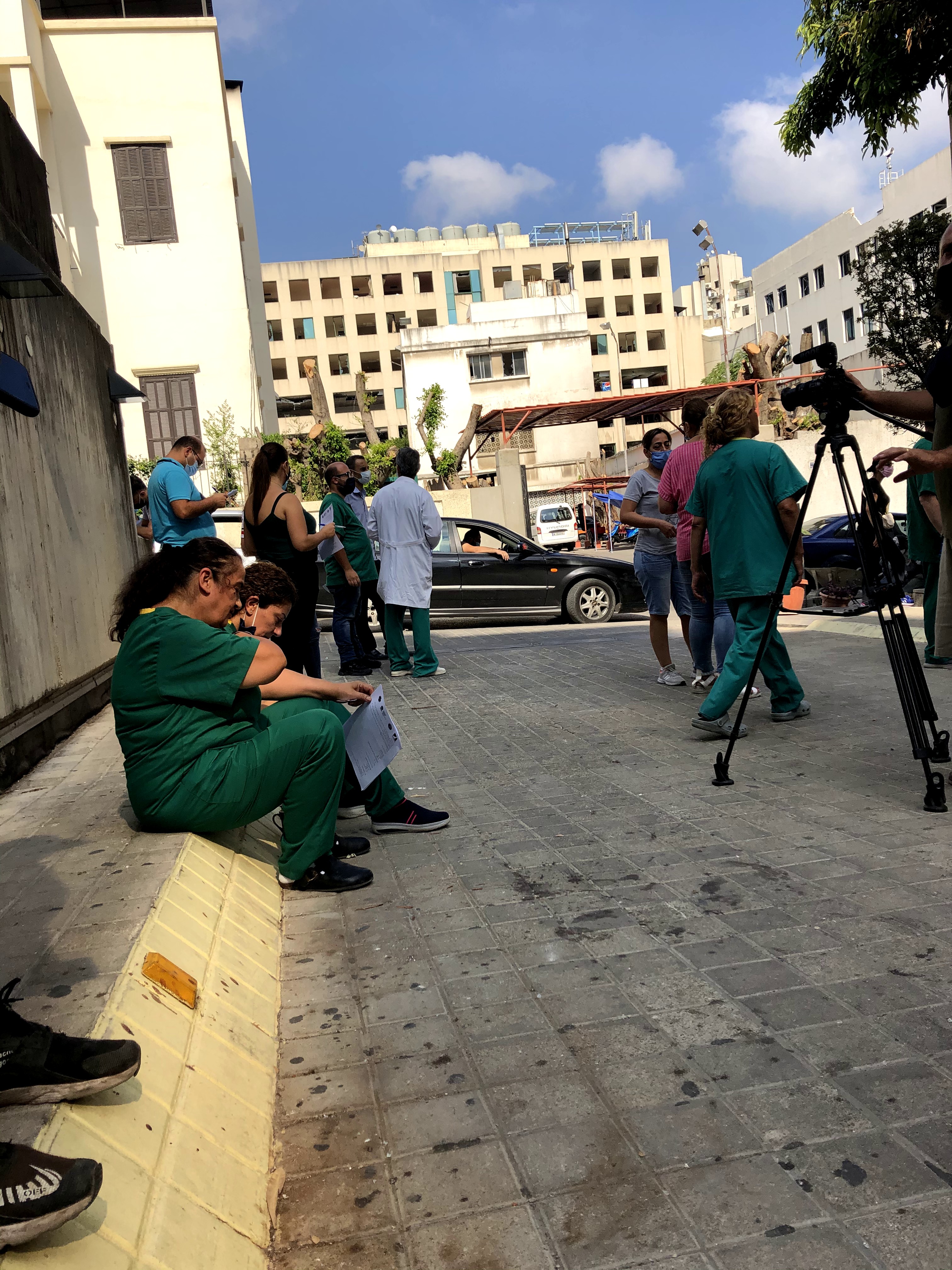00:24

The crazy thing is we always think of hospitals as safe - the places we go for protection and to be taken care of. The explosion proved nowhere is safe.
- ER Nurse, St. George Hospital, Beirut
The corridors of Beirut's St. George Hospital are lined with piles of reminders of the explosion that ripped through the 300-bed facility's Newborn Nursery, ICU, ER, and COVID-19 ward on the evening of August 4.
Heaps of shattered glass from blown-out windows, splintered patient-room doors blown off hinges, and twisted EKG machines thrown against walls are visual proof of the damage that forced Lebanon's oldest hospital to shut down.
"It was like a battlefield. We were treating injured patients and hospital staff in the parking lot in the dark using our cellphone flashlights for light. People were begging for help. I didn't know who to go to first. There was blood everywhere. Glass everywhere," said Osanie, a surgical nurse at St. George Hospital Beirut.

Heaps of shattered glass from blown-out windows, splintered patient-room doors blown off hinges and twisted EKG machines thrown against walls. /CGTN
Heaps of shattered glass from blown-out windows, splintered patient-room doors blown off hinges and twisted EKG machines thrown against walls. /CGTN
Eighteen people, including patients and medical staff, were killed at St. George, one of Beirut's three major hospitals, which is now closed until the damage can be repaired - an undertaking that could take months or years at an estimated cost of 40 million U.S. dollars.
"We have 100-percent damage of infrastructure outside the hospital, 80-percent damage inside the hospital, and 40-percent damage of medical equipment. So we have a total loss," George Saad, chief operations manager of St. George Hospital Beirut, told CGTN.

18 people including patients and medical staff were killed at St. George, one of Beirut's three major hospitals. /CGTN
18 people including patients and medical staff were killed at St. George, one of Beirut's three major hospitals. /CGTN
The World Health Organization surveyed the damage and found 50 percent of Beirut's healthcare facilities are either non-functioning or operating at reduced capacity.
Those figures cast foreboding light on the city's diminished capacity for patient care. An estimated 6,000 people were injured in the August 4 blast, and in recent days, a number of COVID-19 cases in Lebanon are being reported.
"To be honest, we're not thinking about social distancing or even about wearing masks right now. There are so many problems and so many people who need help. Corona is not the priority right now," an ER physician said.
Among those who need help are traumatized medical teams.
"I have nightmares, flashbacks, I cry a lot ... I'm afraid to sleep. I keep thinking there will be another explosion. And I can't get my colleague's face out of my mind. We tried to resuscitate her - to save her life - but we couldn't. She died in the parking lot," Osanie, a surgical nurse at St. George Hospital said.